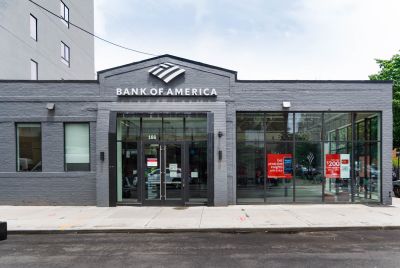Americans Say They Need a Net Worth of $839K to Feel 'Financially Comfortable': Here's How to Calculate Yours
Survey shows Americans now believe they need $839K to feel financially stable — here's how to assess your own net worth

The average American now believes they need $839,000 (£622,000) in net worth to feel financially comfortable, according to Charles Schwab's 2025 Modern Wealth Survey.
This figure is up from $778,000 in 2024 but still below the $1 million benchmark cited in 2023, exposing a harsh reality: most people are nowhere near achieving their own definition of financial security.
Even more striking, Americans now set the threshold for being considered 'wealthy' at $2.3 million (£1.7 million), yet the typical American retiree aged 65 to 74 has a median net worth of just $409,900. That is less than half of what their generation says they need to feel comfortable.
Why Wealth Targets Keep Rising
The Schwab survey highlights four major forces pushing wealth targets ever higher:
- Inflation: Seventy-three percent of respondents blamed persistent price rises for increasing their financial targets, saying the long-term erosion of purchasing power remains a concern.
- Economic uncertainty: Sixty-two percent cited recession fears and job insecurity as reasons for wanting a larger safety net.
- Tax worries: Nearly half of respondents said concern over rising taxes prompted them to raise their savings goals.
- High interest rates: Forty-three percent identified rising borrowing costs as a drain on household wealth, making mortgages and loans less manageable.
Financial Comfort Versus Aspirational Wealth
Rob Williams, Managing Director of Financial Planning at Charles Schwab, told CNBC that most people see financial comfort as tangible and tied to daily life, while 'wealth' is viewed as aspirational.
The survey also finds that savers, investors and planners report greater confidence in achieving their goals. Younger generations are more likely to have a formal financial plan, with 39% of Gen Z and 36% of millennials documenting their financial targets, compared to just 27% of Gen X and 26% of Baby Boomers.
Generational Wealth Gaps
The survey also reveals significant differences in how much each generation believes is needed for financial comfort:
- Gen Z: $329,000
- Millennials: $847,000
- Gen X: $783,000
- Baby Boomers: $943,000
Gen Z sets the lowest bar, perhaps reflecting optimism and less exposure to long-term costs. In contrast, Baby Boomers, who have weathered many economic cycles, set much higher targets.
When it comes to feeling wealthy, 43% of Gen Z and 42% of millennials believe they already are or are on track to be wealthy, compared with only 33% of Gen X and 20% of Baby Boomers.
Expectations Versus Reality
Despite high expectations, reality is starkly different. The median net worth for retirees aged 65 to 74 in the US is around $409,900, well below the comfort threshold cited by older Americans.
Why the Disparity?
Life stage is a key factor. Gen Z, at the start of their careers and often burdened by student debt, sets lower, more realistic goals. Baby Boomers, with decades of financial experience, expect much higher thresholds to fund retirement.
How to Boost Your Net Worth: A Step-by-Step Guide
- Set SMART Financial Goals: Make your targets Specific, Measurable, Achievable, Relevant and Time-bound.
- Budget and Pay Yourself First: Use methods like the 50/30/20 rule or automate savings before discretionary spending.
- Eliminate High-Interest Debt: Focus on paying off credit cards and other costly loans.
- Build an Emergency Fund: Save three to six months' living expenses to avoid falling into debt.
- Start Saving and Investing Early: Even small, regular investments add up over time.
- Diversify Income and Use Tax-Efficient Accounts: Consider side hustles and maximise ISAs, pensions and other UK allowances.
- Automate and Review Savings Regularly: Set up direct debits and check your progress at least annually.
- Improve Financial Literacy: Use reputable resources like MoneySavingExpert, The Money Charity, and MoneyHelper.
- Monitor and Adapt: Adjust your plan as your circumstances and goals change.
The UK Context: How Do You Compare?
While American net worth targets may seem out of reach, British households also face a stark wealth gap. According to the Office for National Statistics (ONS), median individual wealth in Britain (2018 to 2020) was about £157,000, with median household wealth at £293,700 (2020 to 2022).

Wealth Inequality Across the UK
Household wealth peaks for those aged 65 to 74 at £502,500, then declines in older age groups. Regional gaps are significant, with the South East and East of England far wealthier than the North East and Wales.
- South East: £489,800 median household wealth
- North East: £179,900
- London: £244,800
The top 10% of UK households have at least £1.2 million, while the bottom 10% have £16,500 or less, according to the ONS.
Calculating Your Net Worth
To work out your net worth, simply subtract total liabilities from total assets. List everything you own—property, pensions, savings, investments—and deduct what you owe on mortgages, loans and credit cards.
For example, if you have £250,000 in assets (including home value, retirement accounts, savings) and £120,000 in liabilities (mortgage, car loan, credit cards), your net worth is £130,000.
Expectation vs Reality
The wealth gap between expectations and reality remains wide on both sides of the Atlantic. Understanding your financial position, setting realistic goals and making consistent, informed choices is the surest path to greater security, whatever your definition of 'comfortable' might be.
© Copyright IBTimes 2025. All rights reserved.




















